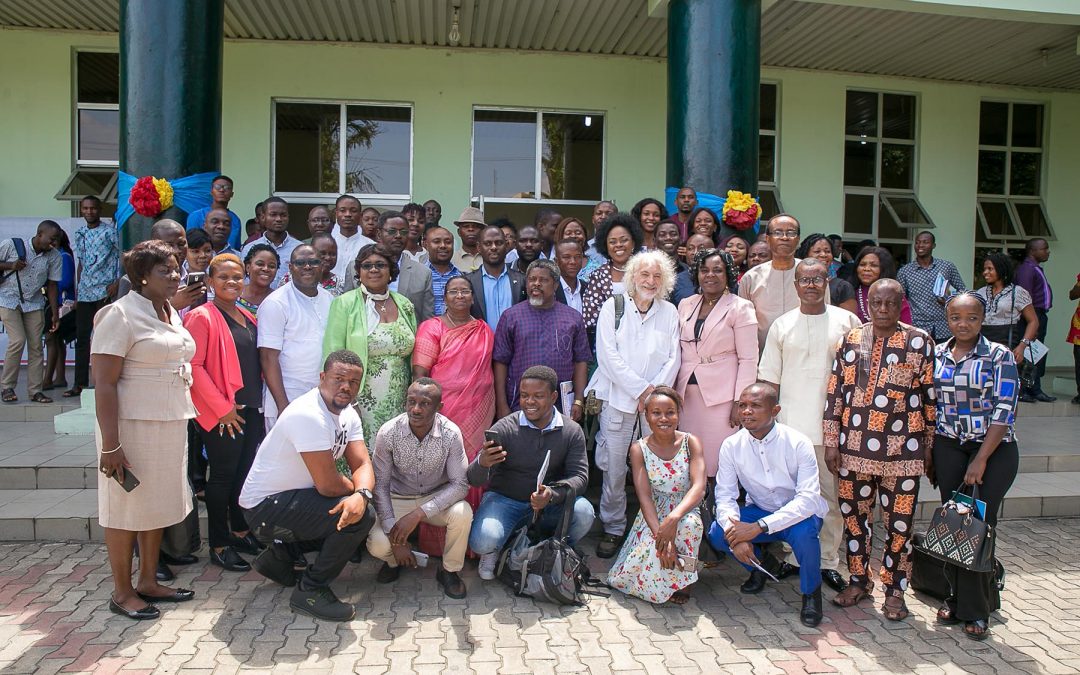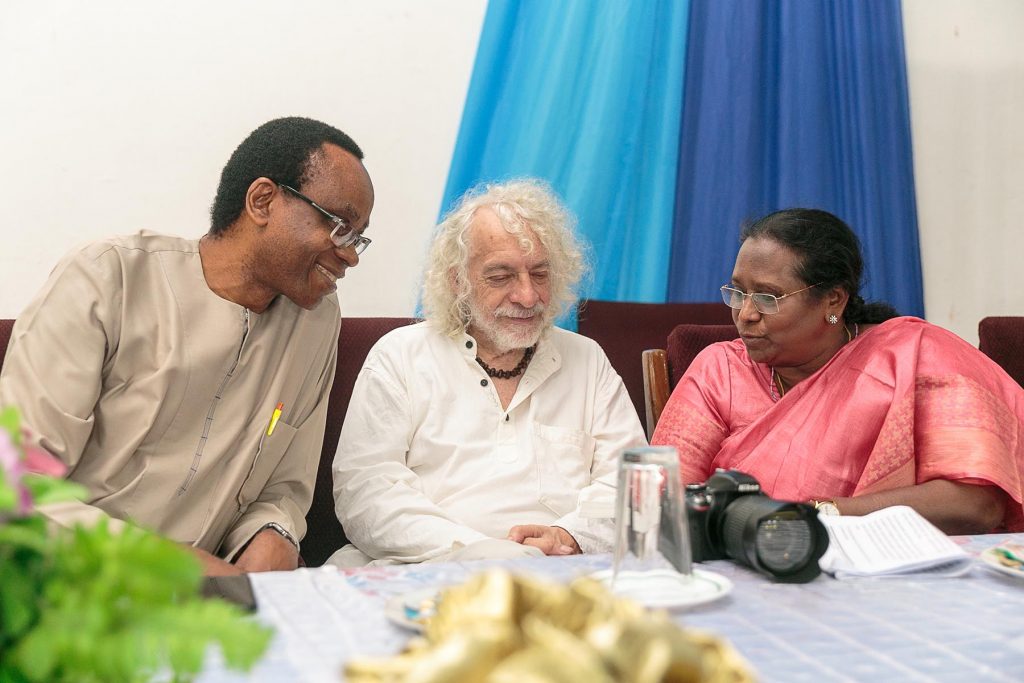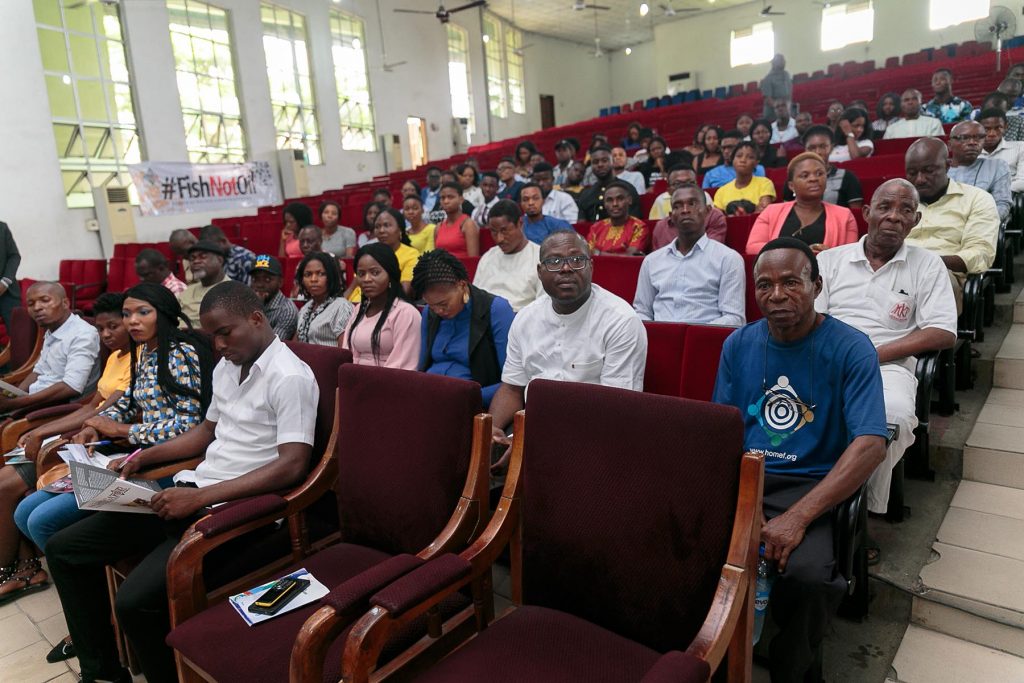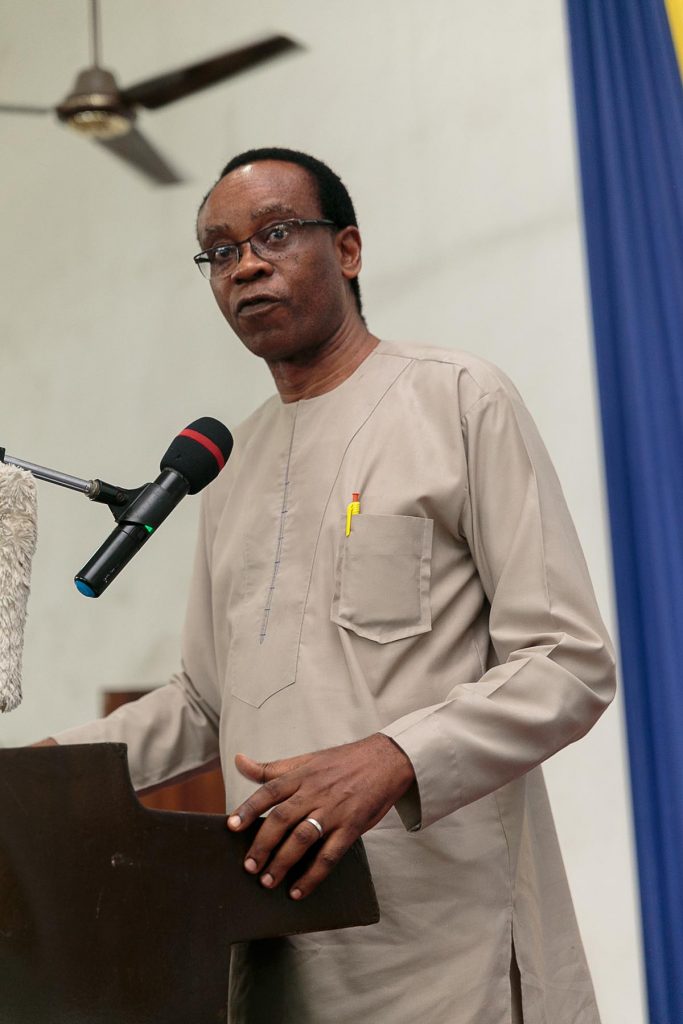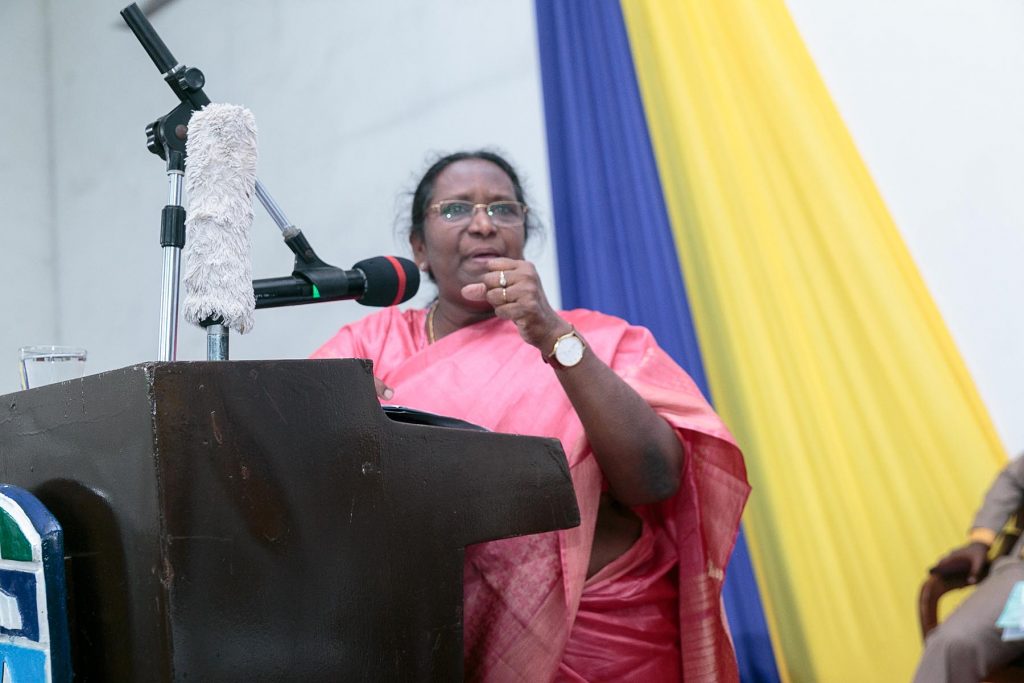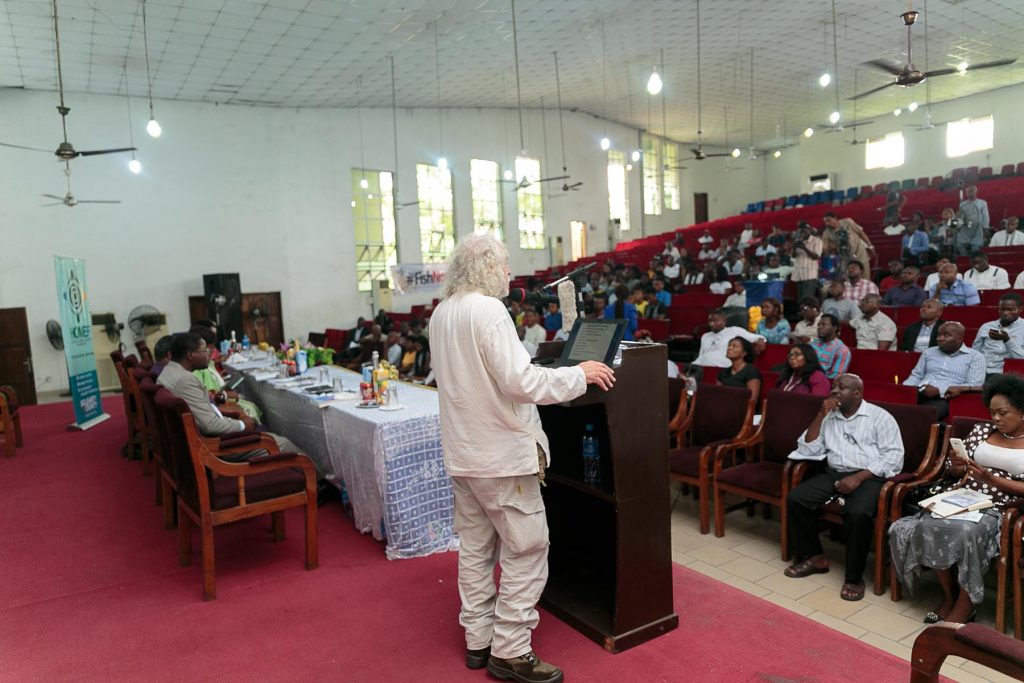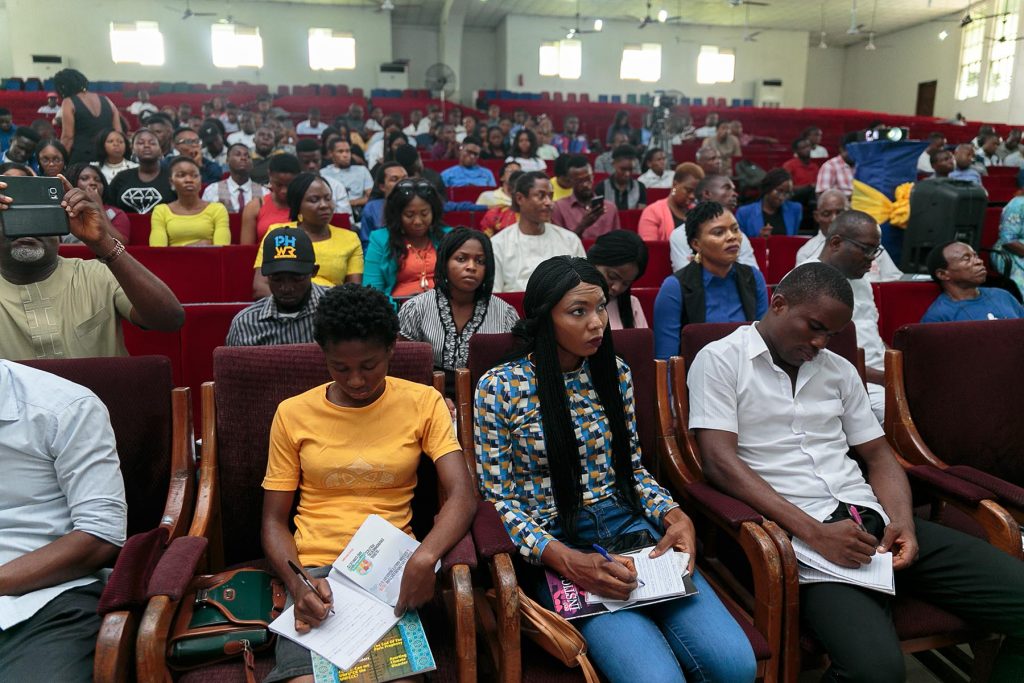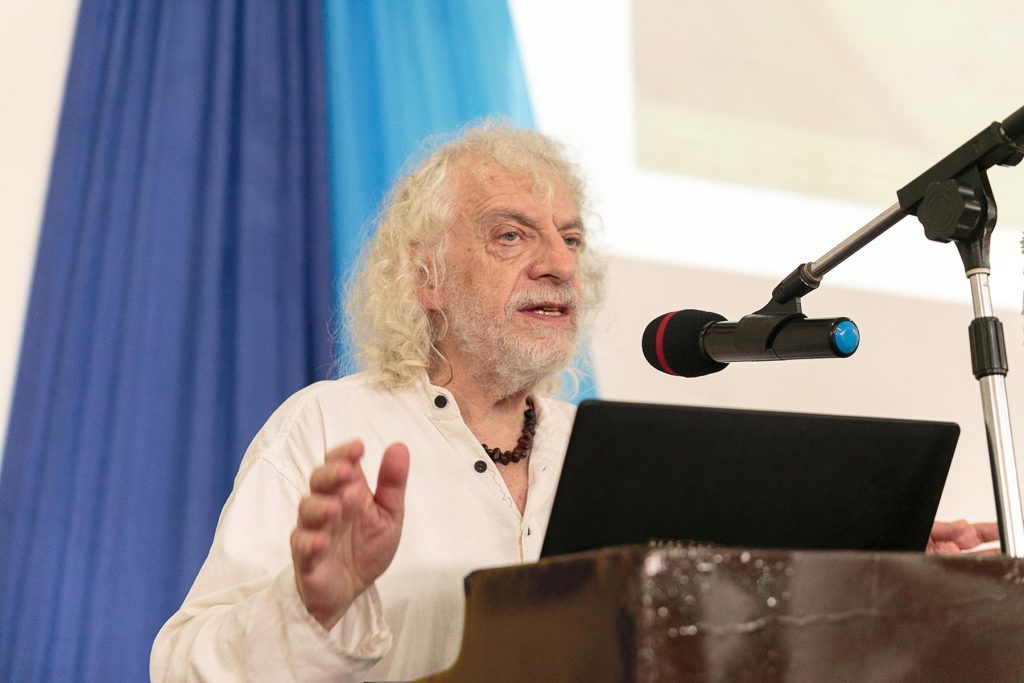Health of Mother Earth Foundation (HOMEF) in collaboration with the Right Livelihood College, Robert Bosch Stiftung and the Center for Conflict and Gender Studies at the University of Port Harcourt organized the 2019 Right Livelihood Lecture on 28 May, 2019 with the theme: Global Environmental Politics, Human Rights and Conflicts.The Lecture was followed on 29 May, 2019 with the 12thsession of the Sustainability Academy.
The events featured lectures by three Laureates of the Right Livelihood award: Dr. Ruth Manorama (2006), Prof. Raul Montenegro (2004) and Bill McKibben (2014) and were attended by over 300 persons including the Vice Chancellor, staff and students of the university; Non-Governmental Organizations; and media representatives.
Ruth Manorama, speaking on Gender, Ecology and Human Rights, stated that for the past 50 years, human rights activism and indeed feminist activism, globally and in India, have managed to challenge several centuries of patriarchal order by striking at the root of exploitation, oppression, subjugation and degradation of women; deconstructing covert and overt violence against women in personal and public life.
According to Manorama, “there is a trajectory between ecology and human/gender rights. When the environment is polluted and the earth is in turmoil, women and the poorest of all are the hardest hit.”
She added: “the earth is our house, our home. From this it follows that we need to love and cherish it. There is a growing awareness among people all over the world that we are facing an Ecological/Environmental crisis, the manifestation of which are many and varied. The earth system is being polluted and destroyed through profligate action and predatory practices by modern profit-oriented and scientific-technological culture, be it industrial, agricultural, or communicational. Signs of the crisis are seen in the diversion of precious resources to destructive and poisonous purposes like production of arms, stockpiling of nuclear weapons and similar insanities which have wrecked and ruined the earth partially, totally, irreparably. Nuclear, radioactive and other fatally toxic wastes are being dumped in the oceans, on islands and continents of the poor and the powerless.”
Manoramashared about how she has dedicated her life to battling a host of interconnected issues related to oppressions arising from caste, gender and class hierarchies. She has fought for rights of domestic workers and the unorganized labour sector, slum dwellers, Dalits, and for the empowerment of marginalized women. She works at the grassroots level and as well focuses on mass mobilization and advocacy at the international level.
Bill McKibben spoke on Climate Change: a Ticking Time Bomb. He explained that is not natural, the rate at which our planet is changing, adding that it is more than anytime we know of from geological records and that it is as a result of climate change. He gave example of the Antarctic and the Artic which are probably the biggest physical structures on our planet, noting that they are both melting at an enormous speed. “80 percent of the rays reaching the Artic used to be reflected back into space but now all the energy gets absorbed and that fast tracks the melting. Even the ocean is 30 percent more acidic because it is also absorbing more carbon from the atmosphere than it used to. The interior of our continent is drying fast and that’s why we see horrific drought in the Middle East, Central America, Africa and many more places”. “These and many more” he said, “are ticking time bombs that can explode anytime if we continue on the path of extractivism and destruction of our planet.”
A third Lecture was delivered by Prof. Raul Montenegro. Speaking on Social and Environmental Conflicts: Interaction between Communities and Universities, he pointed outthat so many factors are top drivers of conflicts and crises including: social and environmental destruction,fake news, bad governments, dictatorship,corruption,breach and violation of laws, consumerism, organized crime, lack of justice, inequity, poverty without power,and militarization.
Montenegro emphasized that there has to be interactions between the academics and communities in order to promote people power and promote knowledge exchange. This can be achieved bywomen and children empowerment, organization of affected people, technical empowerment of citizens, forming coalitions with universities, campaign and media outreaches, protests (with respect to the law), judicial actions, administrative actions and provision of social shields for protecting menaced defenders.
Montenegro added that to have a healthy and mutually beneficial relationship between communities and the academics, it should be taken into account that: good science interacts with good popular knowledge; there should be no secrecy-information and knowledge should flow freely and it must be accessible to the community; working groups should develop their activities in horizontal structures but try to avoid university hegemony; safety measures should be designed, adopted and displayed according to the degree of violence in the area or country.
At the SustainAbility Academy, it was stressed thatfor us to have a sustained environment, there must be a space for multilateral learning and a system of learning based on balanced structures between academia and the grassroots people. Participants were divided into three groups for conversations on: Building Movements against Oil and Gas Pollution;Gender Justice and Ecological Democracy-How do we achieve this in Nigeria?; and Academics and Practitioners-Mapping the Point of Intersection.
At the end of the discussions, the following were resolved by the participants:
- The academia should reach out to activists and practitioners for strategic and practical synergy and to form a platform to carry out researches for sustained environment and also to setup practical institutes that meet the society’s needs.
- Negative legislations that undermine the people and environment should be interrogated and corrected.
- Efforts should be made to have more women in the policy-making circle so that women’s voices will be amplified to achieve gender and ecological justice.
- Women and youth groups should be engaged to resist the activities of the extractive industries which pollute and destroy our environment.
- There should be partnerships between key stakeholders such as NGOs, CSOs, policy makers, legislature, women, and youth groups to tackle the issues of human rights abuses, pollution and environmental degradation.
- Media outreaches and other forms of advocacy and campaigns against pollutions of any form should be embarked on by stakeholders.
- More information should be shared on how people can preserve their environment and remove all religious and cultural barriers.
- Community/ecological monitors and focus groups should be setup in schools.
- The Violence against Persons (Prohibition) Act, 2015 should be enacted and made effective.

